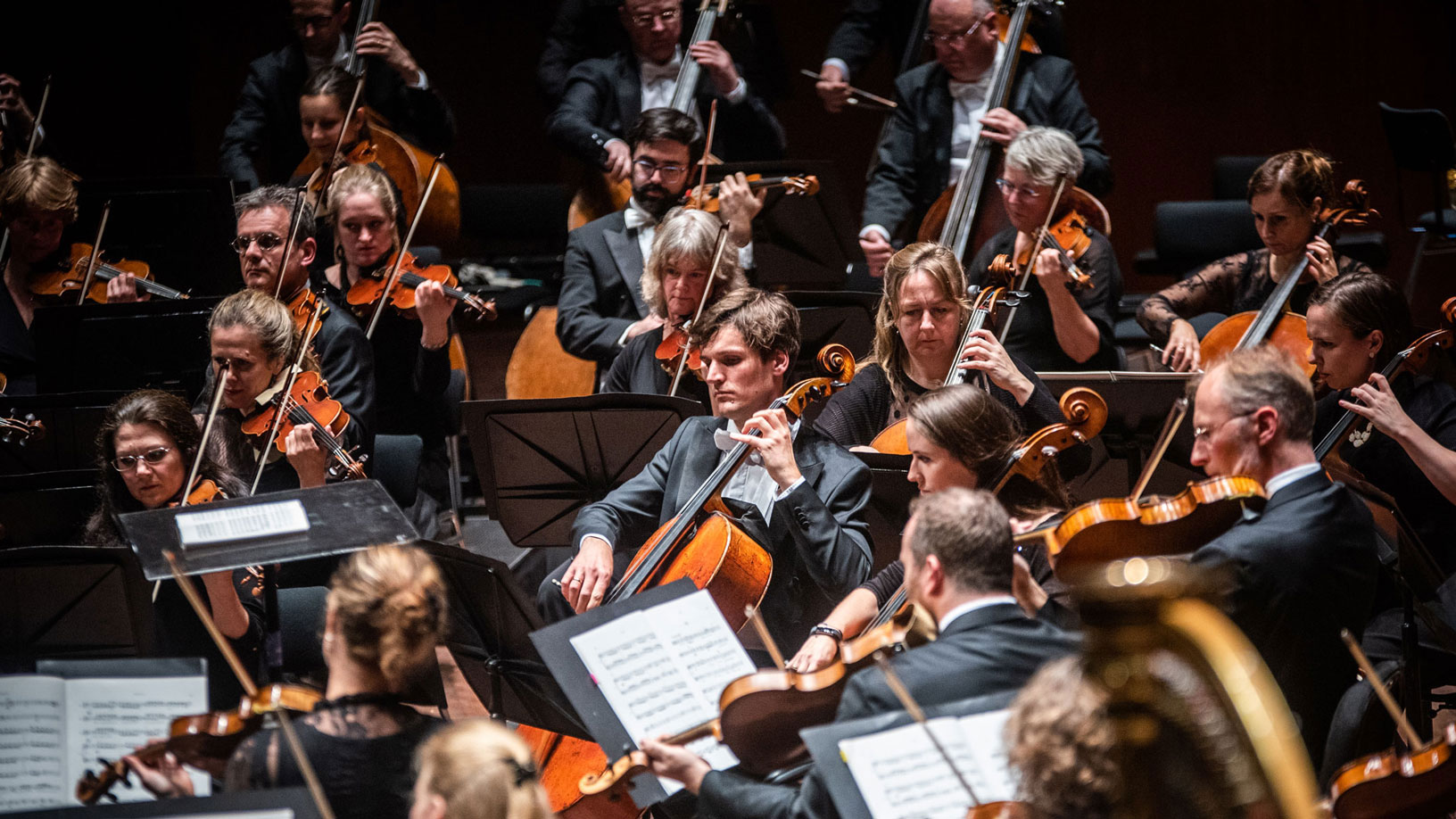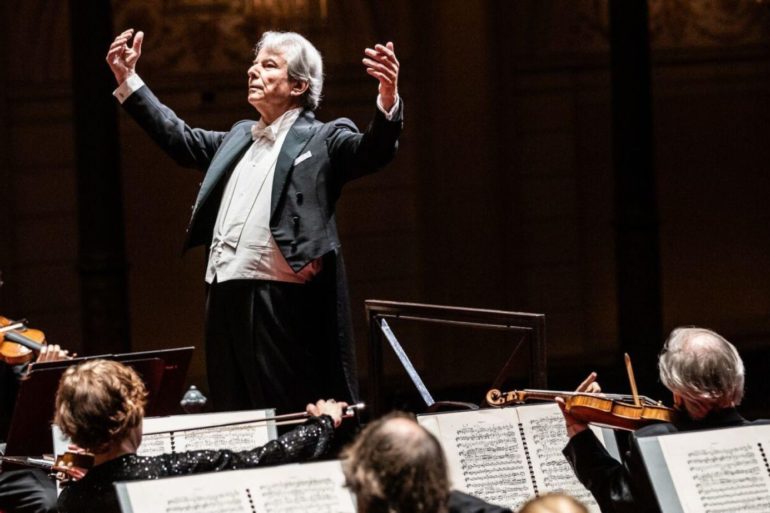
Brahms with Hartmut Haenchen and the NNO
We’re excited to share news of a significant new venture for Aliud Records: a collaboration with the North Netherlands Symphony Orchestra (NNO) and conductor Hartmut Haenchen. This isn’t just another recording project; it’s a partnership built on shared artistic values, and a mutual desire to capture the raw energy of live performance. We’ll be focusing on live concert recordings, aiming to present interpretations that are both deeply considered and spontaneously vibrant. These performances, shaped by Haenchen’s insights and the NNO’s commitment, promise a unique listening experience.
 The inaugural release in this series is particularly meaningful: Johannes Brahms’ Symphony No. 1 in C minor, Op. 68. The choice wasn’t arbitrary. The First Symphony represents a culmination of years of meticulous work, a struggle with form, and the weight of expectation. It stands as a testament to Brahms’s tenacity and his eventual triumph over the shadow of Beethoven.
The inaugural release in this series is particularly meaningful: Johannes Brahms’ Symphony No. 1 in C minor, Op. 68. The choice wasn’t arbitrary. The First Symphony represents a culmination of years of meticulous work, a struggle with form, and the weight of expectation. It stands as a testament to Brahms’s tenacity and his eventual triumph over the shadow of Beethoven.
The symphony’s journey from its tentative beginnings in 1854 to its completed form in 1876 is well-documented. The initial sketches, conceived in D minor, underwent a radical transformation, with much of the material ultimately finding its way into the First Piano Concerto. The composer himself suggested a gestation period of 21 years, a testament to the symphony’s profound complexity and Brahms’s unwavering commitment to perfection.
The symphony’s famous “Alphorn” theme in the finale, sketched for Clara Schumann in 1868, offers a glimpse into Brahms’s creative process. The melody, initially a simple expression of pastoral beauty, is transformed into a powerful statement of hope and affirmation within the symphony’s concluding movement. Its integration into the symphony’s architecture is a marvel of compositional skill.
Guiding this project is Hartmut Haenchen, a conductor whose career has been characterized by an unwavering commitment to musical integrity and intellectual rigor (as noted in the provided text). Born in Dresden amidst the turmoil of post-war Germany, Haenchen navigated the restrictive environment of the German Democratic Republic, eventually gaining access to leading Western ensembles like the Berlin Philharmonic and the Concertgebouw Orchestra. His dedication and profound understanding of the score are what makes him a key figure in this project.
Haenchen’s extensive experience at the helm of world-class orchestras and opera houses is beyond dispute. His 13-year tenure as Music Director of Dutch National Opera, from 1986 to 1999, stands as a testament to his versatility and vision. His interpretations of Wagner, Strauss, and Mahler are particularly noteworthy, earning him widespread acclaim. (Source text about conductor)
Haenchen’s profound respect for the score and his meticulous approach to historical performance practice inform every aspect of his music-making. His recordings and scholarly writings, including his insightful analyses of Wagner and Mahler, offer further evidence of his intellectual depth. He is more than just a conductor; he is a scholar and a musical thinker.

It’s impossible to discuss this project without acknowledging the vital role of the Noord Nederlands Orkest. Based in Groningen, the NNO is the oldest professional symphony orchestra in the Netherlands, with roots stretching back to 1862. From its origins as the Orchest der Vereeniging De Harmonie, through its various incarnations as the Groninger Orkest Vereeniging and the Noordelijk Filharmonisch Orkest, the orchestra has consistently served as a vital cultural force in the northern Netherlands.
The NNO’s rich history is a testament to the enduring power of music and the dedication of the musicians who have shaped its sound over the decades. From Maurice Hageman to Jan van Epenhuysen, a succession of distinguished conductors has guided the orchestra’s artistic development. Adding to this distinguished lineage is Hartmut Haenchen, who, since assuming the role of principal guest conductor in August 2022, has brought his distinctive vision to the ensemble. We believe this fusion of tradition and innovation will yield something truly special.
This new collaboration represents a continuation of our ongoing relationship with the NNO. In 2020, we released a recording of three orchestral works by Simeon ten Holt, including the world premiere of Anthony Fiumara’s orchestration of *Canto Ostinato*. This release, conducted by David Porcelijn, was notable not only for its musical merit but also for its technical innovation, being available on both CD and Blu-ray Disc with Auro 3D and Dolby Atmos options. The project reflects our commitment to pushing boundaries and providing listeners with the most immersive possible experience.
The Brahms symphony is just the first step. We envision this partnership with the NNO and Haenchen as a long-term commitment, exploring a wide range of repertoire that reflects their shared artistic interests. While further Brahms is certainly a possibility, we are also considering other composers whose works resonate with Haenchen’s interpretive strengths.
We understand that our audience consists of discerning listeners who value artistic integrity and technical excellence. We believe that this collaboration with the NNO and Hartmut Haenchen embodies these values. We are committed to capturing the energy and nuance of these live performances, and we are confident that these recordings will stand as a testament to the enduring power of symphonic music. We eagerly anticipate sharing this journey with you.


No Comments
Sorry, the comment form is closed at this time.